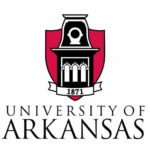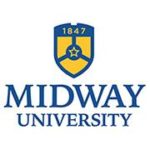
For those who think outside the box, an interdisciplinary degree is worth considering. Why take one discipline and narrow your focus when you can develop and study multiple areas? This broad, integrative approach favors students who are motivated and creative, and who have unusual career goals. An interdisciplinary approach to your education means you can create a specialization just for you.
In recent years programs that can be individualized are growing in popularity. The influence of technology on society is creating globally-minded individuals with the world at their fingertips. For this outside-the-box student, a specialized degree doesn’t work. Interdisciplinary programs foster creativity, imaginative solutions, problem-solving, and integrated approaches—and the fact is these liberal traits are sometimes overlooked in specialized learning. It’s a situation where we can’t see the forest through the trees.
Interdisciplinary degrees come in many forms. They can be called Interdisciplinary Studies, Individualized Degrees, or Integrated Degrees, but they all amount to the same basic idea. They are designed to further connections between disciplines and develop skills of critical thinking and analysis. Interdisciplinary programs can be either a Bachelor of Arts or Bachelor of Science degree. The essential difference between these is a BA requires additional language courses, and the BS requires more research courses or more credits in general. Besides being either a BA or BS, there is a lot of variation from school to school.
On this list, you’ll discover that some schools have more choice than others in terms of curriculum. Some give you the ability to construct your own major. Others give limited choices and disciplines to choose from while others offer a general core and a select number of minors to choose in the creation of your degree. You also may discover that some interdisciplinary programs are more rigorous than others. With the advent of online learning, there are many that offer degrees completely online, while others allow you to choose your delivery (along with your curriculum).
Another note about Interdisciplinary Studies programs is that most require more involved advisors. Colleges usually require you to find faculty mentors, assemble an advising committee, and present a proposal to enter an IS program. Some schools are more rigorous than others in this regard, and you have to convince the panel or committee of the rationale and usefulness of your degree. Also, depending on the school, you may be required to regularly check in and report on your progress while maintaining a high GPA. Another common requirement to note is the senior capstone project and practical work experience or internship.
Methodology: Top 30 Best Bachelor’s in Interdisciplinary Studies
The following list of Bachelor’s in Interdisciplina ry Studies was compiled to help students find the best degree for their interests. Interdisciplinary degrees are broad, and colleges offer a great variety of options. Our goal was to find a range of degrees to make sure that each students’ interests were represented. We compiled a list and collected data for each program. Calculations were made based on cost per credit hour, student to faculty ratio, reputation, and average early career salary. Data was collected from school websites, the National Center for Education Statistics, and U. S. News and World Report. The ranking was based on the following calculations:
- Cost per credit hour — 25%
- Reputation — 25%
- Faculty to student ratio — 25%
- Graduation rate — 25%
1. Wheaton College
- Location: Wheaton, IL

- Total Undergraduate Students: 2,391
- Student to Faculty Ratio: 10 to 1
- Degrees Offered: Bachelor’s degree, Post Baccalaureate certificate, Master’s degree, Doctor’s degree — research/scholarship, Doctor’s degree-professional practice
- Accreditation: Higher Learning Commission
Wheaton College in Illinois is one of the best Christian colleges in America. Wheaton is consistently ranked by both secular and Christian organizations for academics and a robust spiritual environment. The most notable graduate is the late Billy Graham. With over 100 majors and minors, and 80 study abroad programs, you are in for a full-fledged college experience but in a thoroughly Christian atmosphere.
What makes Wheaton our #1 Interdisciplinary Degree is that combination we all look for in the market — the fusion of quality and affordability. Wheaton delivers in terms of academics. The IDS program is not a hodgepodge of credits, but a very intentional focus on fostering creativity in light of WU’s Christian worldview. It starts with the “guiding directive,” a purpose, theme, or topic that is explored throughout the program. For example, how do Christian ethics interrelate with biochemistry? Through the integration of two or three disciplines, you will choose courses, engage in leadership, participate in the IDS Chapel time, and complete a final research project. Since WU is a family of faith, the social aspect of education is an incredible intangible benefit that’s worth mentioning. You reap those benefits in the IDS program through mentoring, study abroad programs, and spring trips to name a few.
- Cost per Credit: $1011
- Program Website: https://www.wheaton.edu/academics/programs/interdisciplinary-studies/
2. Seattle University
- Location: Seattle, WA

- Total Undergraduate Students: 4,560
- Student to Faculty Ratio: 11 to 1
- Degrees Offered: Bachelor’s degree, Post Baccalaureate certificate, Master’s degree, Post-master’s certificate, Doctor’s degree — research/scholarship, Doctor’s degree-professional practice
- Accreditation: Northwest Commission on Colleges and Universities as well as several other accrediting bodies.
Founded by the Jesuits in 1898, Seattle University is one of 28 member institutions of the Association of Jesuit Colleges and Universities. SU is known for overall excellence and is regularly ranked high in just about every area— from Law and graduate degrees to sports and service. The University is divided into eight colleges offering more than 120 undergraduate, graduate, and certificate programs. Students at SU serve the community with three times the national average.
Seattle University offers a BA in Interdisciplinary Liberal Studies (IDLS) and an Interdisciplinary Liberal Studies with an emphasis in Elementary Education K‑8. Both degrees build on a Jesuit educational tradition that focuses on how studies relate to benefit mankind. The ILDS program is a great launching pad to a career or graduate program. The program’s curriculum focuses on four areas: Humanities, Social Science, Natural Science, and Quantitative and Computational Reasoning. After the 25-credit Strategic Core, you move into the 60-credit IDLS score. Within the four areas, you choose courses of study with faculty mentorship from beginning to end. The Association for Interdisciplinary Studies guides SU’s IDLS. This means you focus on research, leadership, and real-work project-based learning.
- Cost per Credit: $973
- Program Website: https://www.seattleu.edu/artsci/undergraduate-degrees/interdisciplinary-liberal-studies/
3. Molloy College
- Location: Rockville Centre, NY

- Total Undergraduate Students: 3,534
- Student to Faculty Ratio: 10 to 1
- Degrees Offered: Associate’s degree, Bachelor’s degree, Post Baccalaureate certificate, Master’s degree, Post-master’s certificate, Doctor’s degree — research/scholarship
- Accreditation: Middle States Commission on Higher Education as well as several other accrediting bodies.
Molloy College is a private, non-profit, Catholic school located in Rockville Centre, New York. It was founded in 1941 as a women’s college. It has since become coeducational and continues to grow its programs and student body. In fact, in the last decade, MC has experienced a 26-percent enrollment growth. The School offers over 50 majors and is best known for nursing and business.
At Molloy, you have three basic options for an interdisciplinary degree. You can earn a BA or BS in Interdisciplinary Studies or combine the Interdisciplinary with Childhood Education. Flexibility and choice are distinguishing characteristics. You can choose to create your own degree from two or more disciplines, you can complete it online, on-campus, or hybrid. You can also take existing credits from incomplete degrees or other schools and use those to earn a Bachelor’s in Interdisciplinary Studies. The program includes a summer internship and an integrated project which involves in-depth research and the ability to write well. There are some prerequisites for getting into the Program. These include presenting your declared concentrations to the chairperson and their approval in your first year. If you have transfer credits you are required to take 12 of the required credits for each area of concentration at Molloy.
- Cost per Credit: $1005
- Program Website: https://www.molloy.edu/academics/undergraduate-programs/interdisciplinary-studies
4. University of Virginia
- Location: Charlottesville, VA

- Total Undergraduate Students: 16,655
- Student to Faculty Ratio: 15 to 1
- Degrees Offered: Less than one year certificate, One but less than two years certificate, Associate’s degree, Bachelor’s degree, Post Baccalaureate certificate, Master’s degree, Post-master’s certificate, Doctor’s degree — research/scholarship, Doctor’s degree-professional practice
- Accreditation: Southern Association of Colleges and Schools, Commission on Colleges as well as numerous other accrediting bodies.
The University of Virginia is a public-private flagship and research university in Charlottesville, Virginia. Interestingly, UNESCO designated the University as America’s first and only collegiate World Heritage Site in 1987, an honor shared with nearby Monticello. “Virginia,” as it the School is called, was founded by Thomas Jefferson in 1819 and continues the founder’s mission to “develop tomorrow’s leaders who are well prepared to help shape the future of the nation and the world.”
The Bachelor of Interdisciplinary Studies (BIS) degree is an online degree-completion program. It’s perfect for adult learners, transfers, and anyone who wants to complete their college education. The BIS degree is 120 credits and can be taken online, on-campus, or hybrid in a part-time format. This normally works out to two evening classes a week for three or four years. As for the courses, you first complete the required Liberal Arts Seminars which focus on foundational knowledge and skills. You then create your own program with guidance from your advisor by choosing from Business, Cyber Security Analysis, Health Care Management, Information Technology, and Liberal Arts. You are required to complete two capstones which include analytical reasoning, writing, a project, and professional integration.
- Cost per Credit: $1439
- Program Website: https://www.scps.virginia.edu/programs/bachelor-interdisciplinary-studies-degree
5. New College of Florida
- Location: Sarasota, FL

- Total Undergraduate Students: 835
- Student to Faculty Ratio: 10 to 1
- Degrees Offered: Bachelor’s degree, Master’s degree
- Accreditation: Southern Association of Colleges and Schools, Commission on Colleges
New College of Florida is known for delivering an Ivy-level education. Listed in Loren Pope’s Colleges that Change Lives, and collecting numerous accolades as well, New College is a liberal arts school that offers 35 areas of concentration. NCF is particularly known for arts and music and focuses on active, hands-on learning to achieve mastery in all subjects. NCF is located in Sarasota, Florida on a beautiful 110-acre campus with several new buildings.
The BA in Interdisciplinary Studies at New College is not for the faint of heart. Known for academic rigor, students select from an area of concentration: Biopsychology, Environmental Studies, International and Area Studies, Gender Studies, Medieval and Renaissance Studies, Public Policy, or Theater. The program is taught by recognized faculty and includes a senior thesis. When looking at New College, the value is not only in the program, though the price is one of the best at $831 per credit. The campus and student body form a great context for learning. The average high school GPA of incoming freshmen is 3.99 and you will have access to excellent resource facilities such as the Caples Fine Arts Complex, the Pritzker Marine Biology Research Center with seven research labs and over 100 aquariums, or the brand new student center, the Hamilton Center.
- Cost per Credit: $831
- Program Website: https://www.ncf.edu/academics/undergraduate-program/
6. North Central College
- Location: Naperville, IL

- Total Undergraduate Students: 2,769
- Student to Faculty Ratio: 14 to 1
- Degrees Offered: Bachelor’s degree, Post Baccalaureate certificate, Master’s degree
- Accreditation: Higher Learning Commission
North Central College is a private liberal arts school in the historic district of Naperville, Illinois. Naperville is near Chicago and thus give students access to the Argonne National Laboratory and the Fermi National Accelerator Laboratory. NCC is known for incredible International Study opportunities from full exchange programs with a number of countries, summer trips, or December term excursions.
At North Central, the Interdisciplinary programs are designed based on a long experience and offered as majors, minors and graduate programs. The Bachelor’s in Interdisciplinary Studies include East Asian Studies, Environmental Studies, and Global Studies and a number of minor options as well. All the programs build on Core and All-College Requirements of NC with the specialized interdisciplinary options. For example, the BA in East Asian Studies includes all core requirements, some fundamental courses such as Introduction to East Asia in the major, then a Japanese or Chinese track. Regardless, every option of Interdisciplinary Majors includes unique student opportunities such as study abroad options, specialized research, Model United Nations simulations, and more. Notably, the Global Studies option includes the possibility of earning the Richter Independent Study Fellowship of up to $5000 to fund your research. Whatever you choose, it is clear, NC offers some of the best options in terms of quality and price in the country
- Cost per Credit: $1075
- Program Website: https://www.northcentralcollege.edu/colleges-schools-departments/interdisciplinary-programs
7. Grand Valley State University
- Location: Allendale, MI

- Total Undergraduate Students: 21,937
- Student to Faculty Ratio: 16 to 1
- Degrees Offered: Associate’s degree, Bachelor’s degree, Post Baccalaureate certificate, Master’s degree, Post-master’s certificate, Doctor’s degree — research/scholarship
- Accreditation: Higher Learning Commission as well as numerous other accrediting bodies.
One of the largest, and greenest universities in our nation, Grand Valley State University is located in Allendale, Michigan. Established in 1960, the School educates through its main campus, downtown campus in Grand Rapids, international campus in Holland, as well as through several community colleges. GVSU offers incredible academic choices and extracurriculars, with over 4000 study abroad options and 400 student clubs.
The Liberal Studies Department offers a BA or BS in Liberal Studies. The Program is an interdisciplinary degree as you take the core curriculum, then, with guidance from a faculty advisor, create a major in the areas of study you desire. Students base their major on a theme, issue, problem, or career interest and, in addition, are encouraged to choose an area of emphasis as well. One such option is the Leadership Emphasis. The leadership component is a 19-month cohort option in a hybrid format that will increase your marketability and skills. All Liberal Studies majors are required to participate in an Internship or Practicum and a Senior Seminar. The Internship includes participate in a supervised work experience, the Practicum is a community service component, and the Seminar is the academic portion involving research and writing.
- Cost per Credit: $742
- Program Website: https://www.gvsu.edu/liberalstudies/
8. Reed College
- Location: Portland, OR

- Total Undergraduate Students: 1,447
- Student to Faculty Ratio: 9 to 1
- Degrees Offered: Bachelor’s degree, Master’s degree
- Accreditation: Northwest Commission on Colleges and Universities
Reed College is nestled in the gorgeous Pacific Northwest. A small, private school in Portland, Oregon, Reed is recognized on Pope’s Colleges that Change Lives and is known for outstanding scholarship and its progressive campus culture. All students are required to take the liberal arts core and complete a rigorous senior thesis. The Tudor-Gothic style architecture and famous northwest trees are also worth mentioning as they create a fabulous atmosphere for study.
Reed’s academic vision and method are unique. Freshmen all take Humanities 110, juniors all take a test of mastery to prepare for research into the senior thesis, and all seniors complete a thesis. Students do not receive grades but move through Reed with faculty feedback and subject mastery. There are 16 Interdisciplinary Studies majors at Reed. Examples include but are not limited to American Studies, Biochemistry, and Molecular Biology, Classics–Religion, Mathematics-Computer Science, and Literature–Theatre. You also have the opportunity to double major with some. Though the price per credit one of the more expensive options, it’s important to note distinctions: close faculty interaction, faculty accolades, institutional excellence and experience, campus, student life, and more truly make Reed what it is.
- Cost per Credit: $1867
- Program Website: https://www.reed.edu/
9. Radford University
- Location: Radford, VA

- Total Undergraduate Students: 8,418
- Student to Faculty Ratio: 16 to 1
- Degrees Offered: Less than one year certificate, Bachelor’s degree, Post Baccalaureate certificate, Master’s degree, Post-master’s certificate, Doctor’s degree
- Accreditation: Southern Association of Colleges and Schools, Commission on Colleges as well as numerous other accrediting bodies.
Originally a teacher training school for women, Radford is now a mid-sized, public, coeducational school. Located in Radford, Virginia, the School offers over 100 degrees to about 9500 total students. RU is known for liberal arts and sciences at a very affordable cost. Students enjoy outdoor and leisure activities at New River in the foothills of the Blue Ridge Mountains.
The College of Humanities and Behavioral Sciences offers an Interdisciplinary Studies degree (IDSL). The IDLS allows you to build your own degree by combining two disciplines. You can choose to make it a BA or a BS; the difference being the BA involves more language requirements and the BS more classes (six to eight more semester hours) with a research focus. Regardless, all students in the IDSL program are required to complete an internship. Some examples include Women’s Resource Center of the NRV, New River Community Action, and Boys & Girls Clubs of Southwest Virginia. Admission into the IDSL program is essentially two steps (after you’re admitted into RU): first, you meet with the IDSL Interim Director, and next, you meet with your advisor to guide you in constructing your degree and choosing a plan of study. All in all, what RU offers is a quality education at the most inexpensive price on our list!
- Cost per Credit: $354
- Program Website: https://www.radford.edu/content/chbs/home/interdisciplinary.html
10. University of Scranton
- Location: Scranton, PA

- Total Undergraduate Students: 3,810
- Student to Faculty Ratio: 12 to 1
- Degrees Offered: Less than one year certificate, One but less than two years certificate, Associate’s degree, Bachelor’s degree, Post Baccalaureate certificate, Master’s degree, Post-master’s certificate, Doctor’s degree — research/scholarship, Doctor’s degree-professional practice
- Accreditation: Middle States Commission on Higher Education as well as several other accrediting bodies.
“Religio Mores Cultura—Religion Morals Culture” is the motto of the University of Scranton. Founded as St. Thomas College in 1888, the School educates in the Catholic Jesuit spiritual tradition. The private, liberal arts university requires every student to take core classes, including two theology courses and two philosophy courses in line with the Jesuit founding. The most popular majors are Nursing, Biology, Kinesiology and Exercise Science and Accounting.
At the University of Scranton, the Individualized Major (IM) is designed for the motivated student. Within the Jesuit tradition of intellectual excellence, admission consists of first having a 3.0 GPA, a proposal to the College of Arts and Science Dean in the second semester of your sophomore year. The proposal has to be pre-approved by two mentor faculty. It is then reviewed, and if approved by the Individualized Program Board, adopted. Once your plan is in place you work through the curriculum consisting of a minimum of 36 credits (on top of the liberal arts core). In order to graduate you are required to meet with your mentors, write a reflection paper of your progress, and maintain a C average. All students are required to complete the integrative capstone, a highlight of the program. Among our top 30, the University of Scranton is one of the most rigorous and expensive.
- Cost per Credit: $2451
- Program Website: http://catalog.scranton.edu/preview_program.php?catoid=28&poid=5532
11. The University of Tennessee at Martin
- Location: Martin, TN

- Total Undergraduate Students: 6,330
- Student to Faculty Ratio: 15 to 1
- Degrees Offered: Bachelor’s degree, Master’s degree
- Accreditation: Southern Association of Colleges and Schools, Commission on Colleges as well as several other accrediting bodies.
The University of Tennessee at Martin is a comprehensive, public university in West Tennessee. UTM offers over 100 academic areas of study within 17 undergraduate degree programs and also offers Master’s degrees. UTM operates a large experimental farm and centers are located in Jackson, Parsons, Ripley, Selmer and Somerville. Popular majors at UTM include Business, Management, Marketing, Agriculture, Multi/Interdisciplinary Studies, and Education.
The College of Education, Health, and Behavioral Sciences at UTM offers the Bachelor of Interdisciplinary Studies (BIS) degree. The BIS degree can be completed online or face-to-face. This makes it a great option for adult learners or working professionals. With a low price of $518 per credit and a solid academic reputation, UTM is a good combination of price and quality. Once admitted into the University you will need to speak with an advisor to determine your plan for the BIS, especially to determine previous credits. You need to have a minimum GPA of 2.0. Notably, UTM accepts up to 60 hours of non-college credit including military, DANTES, CLEP and Portfolio credit hours. The Program basically consists of a General Core, your areas of focus, and electives. You can choose multiple areas, but none may be more than 50 credits.
- Cost per Credit: $518
- Program Website:
12. North Greenville University
- Location: Tigerville, SC

- Total Undergraduate Students: 2,358
- Student to Faculty Ratio: 14 to 1
- Degrees Offered: Bachelor’s degree, Master’s degree, Doctor’s degree — research/scholarship
- Accreditation: Southern Association of Colleges and Schools, Commission on Colleges
Faith and learning are taken seriously at North Greenville University. The private, Christian school requires all staff and students to make a profession of faith in Jesus Christ. Learning is paramount and NGU ranks high in affordability, among Christian schools, and for academic excellence. The School is located in Tigerville, North Carolina, 11 miles north of Greenville. NGU awards Bachelor’s, Master’s and Doctor’s degrees.
The BS in Interdisciplinary Studies at NGU works well for those with a broad academic interest. It also helps set the stage for further education or training. The curriculum consists of choosing a primary and secondary emphasis among many choices. Primary focus includes Accounting , Biology, Business Administration, Computer Science, and Psychology to name some. Secondary concentrations include many more options such as Art, Aviation Minor, Christian Studies, Education, and Linguistics to name only some. If you are motivated you can also add a minor (18 credits). It should be noted that every student is required to a senior seminar and, in light of the spiritual focus at NGU, to attend chapel and cultural events. If you’re looking for a Christian school with academic know-how at an affordable price—NGU is #2 for affordability in our top 30—you just found what you’re looking for.
- Cost per Credit: $395
- Program Website: https://www.ngu.edu/interdisciplinary-studies-bs.php
13. Simpson College
- Location: Indianola, IN

- Total Undergraduate Students: 1,432
- Student to Faculty Ratio: 11 to 1
- Degrees Offered: Bachelor’s degree, Post Baccalaureate certificate, Master’s degree
- Accreditation: Higher Learning Commission
Buttressed by the beautiful Buxton Park Arboretum, Simpson College educates men and women in the liberal arts tradition. The School was founded in 1913 and is located in Indianola, Iowa, about 10 miles from Des Moines. SC offers 80 majors, minors and programs; the most popular majors are Business Administration and Management, Criminal Justice/Law Enforcement Administration; Education, and Psychology.
Simpson College is a member of the Association for Interdisciplinary Studies. Guided by the Association, the College offers an Independent Interdisciplinary Major (IIM). The IIM is for the motivated student. The following majors work well and are available with other combinations: Biochemistry, Forensic Science, Neuroscience, International Relations, Liberal Studies Major for Elementary Education, and Social Justice Studies. Within these majors, you choose areas that complement and enhance them such as Women’s and Gender Studies, Sustainability, Forensic Science, Latin American Studies, and Art History. SC also offers IIM degrees with the Pre-Physical Therapy or Pre-Law Program. All students complete a senior project. Admission to the program requires a strong academic potential, minimum GPA of 3.0, a proposal of your course of study, and two letters of recommendation from faculty.
- Cost per Credit: $1280
14. Winthrop University
- Location: Rock Hill, SC

- Total Undergraduate Students: 5,014
- Student to Faculty Ratio: 14 to 1
- Degrees Offered: Less than one year certificate, Bachelor’s degree, Post Baccalaureate certificate, Master’s degree, Post-master’s certificate
- Accreditation: Southern Association of Colleges and Schools, Commission on Colleges as well as several other accrediting bodies.
In 1886 a teaching college opened with 21 students. Winthrop now trains over 6000 individuals and awards about 70 undergraduate and graduate degrees in a variety of fields. The campus is adorned with neo-Georgian buildings and is included in the National Register of Historic Places and is set near Winthrop Lake.
If you are driven to study a variety of fields, love creativity and independence, and are motivated, the Bachelor of Arts in Individualized Studies (IDVS) at Winthrop may fit the bill. The BA offers students the chance to excel in written and oral communication, analytical and critical thinking, knowledge synthesis, and collaborative work. Examples of current IDVS programs include Forensic Anthropology, Script and Design for the Digital Game Industry, Entrepreneurship in the Creative Industry, and International Community and Development. Like other programs on our list, you need to demonstrate the value of your plan before it’s accepted. You do this by first assembling a Faculty Committee with three faculty advisors. Acting as your mentors, they work with you to create your Plan of Study (36 credits and at least two disciplines), execute it, and complete your senior capstone project.
- Cost per Credit: $1229
15. Bennington College
- Location: Bennington, VT

- Total Undergraduate Students: 3,534
- Student to Faculty Ratio: 10 to 1
- Degrees Offered: Bachelor’s degree, Master’s degree
- Accreditation: New England Commission of Higher Education
Bennington College was formed out of a desire to better educate the next generation through innovative teaching and learning. BC is a private liberal arts school in Vermont founded in 1932. Their focus is on self-directed learning and hands-on education. All students at BC receive individualized academic planning and graduate-style advising called the Plan Process; this accounts for the incredible 80 percent of graduates being engaged at work compared to the 39 percent national average.
The individualized plan, designed through the Plan Process for all students, is an interdisciplinary degree. The Plan involves a three-person faculty committee that guides you in the creation of your study, planning of work experiences, and regularly gives you feedback in order to complete it. Areas of study that can be developed, combined and studied creatively include: Dance, Drama, Environmental Studies, Languages, Literature, Music, Science, Mathematics, and Computer Science, Society, Culture, and Thought, and Visual Arts. With these areas and no required courses, you truly choose your unique study. Classes come in three-week, seven-week, or full-term courses. In addition to class work, every student is required to engage in an annual internship, one of the few schools in the nation to do so. There is also a senior capstone experience.
- Cost per Credit: $1772
- Program Website: http://www.bennington.edu/academics/plan
16. Daemen College
- Location: Amherst, NY

- Total Undergraduate Students: 1,801
- Student to Faculty Ratio: 12 to 1
- Degrees Offered: Less than one year certificate, One but less than two years certificate, Bachelor’s degree, Post Baccalaureate certificate, Master’s degree, Post-master’s certificate, Doctor’s degree-professional practice
- Accreditation: Middle States Commission on Higher Education as well as several other accrediting bodies.
Daemen College is a four-year, liberal arts college located in Amherst, New York. Founded by a Catholic nun, the College is now non-sectarian and known for open inquiry and debate as well as competency-based core curriculum rooted in the liberal arts. Students are also required to serve the community at Daemon. The most popular majors are Nursing, Natural Sciences, Business, and Social Work.
In line with Daemon’s educational vision of inquiry and creative thinking, the College offers their Interdisciplinary Program (IP). The IP at Daemon incorporates Cooperative Education, Environmental Studies, Forensic Studies, Individualized Studies, International Studies, and Military Science (ROTC) into an exciting program. Examples of options include, but aren’t limited to Criminal Justice, Global and Local Sustainability, Political Communications, Refugee & Migration Studies, and Women’s Studies. There a number of minors that can complement your area of study as well. Depending on the area of study you are encouraged to engage in meaningful internships that add value to your interdisciplinary studies degree. There are also options to study abroad in your IP, for example, the Civil Society and Sustainable Communities Minor.
- Cost per Credit: $933
- Program Website: https://www.daemen.edu/academics/value-added-opportunities/interdisciplinary-studies
17. Norwich University
- Location: Northfield, VT

- Total Undergraduate Students: 3,225
- Student to Faculty Ratio: 13 to 1
- Degrees Offered: Bachelor’s degree, Post Baccalaureate certificate, Master’s degree
- Accreditation: New England Commission of Higher Education
As the oldest private military college, Norwich University has deep roots. Going back to 1819 and the pioneering work of founder Captain Alden Partridge, the University seeks to liberally educate men and women to be useful and enlightened citizens. NU is committed to public leadership and service and is the birthplace of the ROTC program.
If you have at least 30 credit hours of prior college coursework or equivalent military or professional training, you can apply to the Interdisciplinary Program at Norwich. The University offers a Bachelor’s in Interdisciplinary Studies completely online. Norwich’s online IS program is perfect for working professionals and adult learners; the School accepts up to 90 transfer credits. There are basically four steps to complete your Bachelor’s: Elective courses, Core curriculum, which involves six academic areas, a concentration, and the Capstone project. Throughout these areas, the focus is always on effective communication, problem-solving, collaboration, critical thinking, and research and analysis that will lead to productive careers. Examples include Data Analyst, Executive Assistant, Federal Agent, and Foreign Ambassador to name only some. Admission includes an associate degree or minimum of 30 credits and NU offers multiple start dates per year for your convenience.
- Cost per Credit: $1261
- Program Website: https://online.norwich.edu/academic-programs/bachelors/interdisciplinary-studies/overview
18. The University of Oklahoma
- Location: Norman, OK

- Total Undergraduate Students: 22,032
- Student to Faculty Ratio: 18 to 1
- Degrees Offered: Less than one year certificate, Bachelor’s degree, Post Baccalaureate certificate, Master’s degree, Doctor’s degree — research/scholarship, Doctor’s degree-professional practice
- Accreditation: Higher Learning Commission as well as several other accrediting bodies.
The University of Oklahoma is a public research university and was founded in 1890 in Oklahoma Territory. Today it is located in Norman, Oklahoma and is an academic powerhouse. The University offers 152 undergraduate programs, 160 master’s programs, and 75 doctorate programs. It is classified as a research university with “very high research activity.”
The University of Oklahoma offers a Bachelor of Arts Liberal Studies through their Extended Campus. The degree is focused on training professionals with critical thinking skills who are prepared to successfully navigate in our technological world. This accelerated program is designed for the working adult. Students who are admitted to the program are assigned an advisor who helps design an individualized graduation plan. All courses are eight weeks long and are fast-paced and intensive. The program can be completed in as little as 18 months depending on how many credits you transfer from another institution. Students can choose a primary focus in humanities, social sciences, ecology and evolution, as well as several other options. This is one of the few completely online programs on the list, making it worth considering.
- Cost per Credit: $904
- Program Website: https://pacs.ou.edu/undergraduate-degrees/bachelor-liberal-studies/
19. University of Arkansas
- Location: Fayetteville, AR

- Total Undergraduate Students: 23,044
- Student to Faculty Ratio: 18 to 1
- Degrees Offered: One but less than two years certificate, Two but less than 4 years certificate, Bachelor’s degree, Post Baccalaureate certificate, Master’s degree, Post-master’s certificate, Doctor’s degree — research/scholarship, Doctor’s degree-professional practice, Doctor’s degree — other
- Accreditation: Higher Learning Commission as well as numerous other accrediting bodies.
The University of Arkansas is a large, public, land-grant university and flagship of the University of Arkansas System. Students enjoy all the perks and choice our large universities offer, from numerous centers, over 200 degrees, many student groups and extracurricular options, to a classic college campus. The University of Arkansas is located in Fayetteville, Arkansas and is known for agriculture, business, architecture, and law.
The way the Interdisciplinary Studies degree works at UA is simple. You take the School’s core curriculum and then choose three minors to create your degree. Classes are available 100 online and there are 120 total credits in the program. The core curriculum consists of 35 semester-credit-hours of general education courses. Available minors that can be taken online include African and African American Studies, Child Advocacy Studies Training, Communication, Criminal Justice, General Business, Journalism, Social Work, or Spanish. Once you are admitted to the University you consult with the Fulbright Advising Center to decide your plan of study. After this, you must maintain a 2.5 GPA to stay in the program (if you fall under that you have one semester to bring it back up).
- Cost per Credit: $780
- Program Website: https://online.uark.edu/programs/bachelor-arts-interdisciplinary-studies.php
20. University of Alaska Southeast
- Location: Juneau, AK

- Total Undergraduate Students: 2,060
- Student to Faculty Ratio: 10 to 1
- Degrees Offered: Less than one year certificate, One but less than two years certificate, Associate’s degree, Bachelor’s degree, Post Baccalaureate certificate, Master’s degree
- Accreditation: Northwest Commission on Colleges and Universities
The University of Alaska Southeast is one of the three institutions and 19 campuses in the University of Alaska System. UA Southeast is located in Juneau and also operates campuses in Sitka and Ketchikan. The University is divided into the School of Arts and Sciences, Career Education, and Education. UAS has excellent research facilities and is set in the natural and expansive beauty that makes the state unique.
The Bachelor of Liberal Arts (BLA) is UAS’s interdisciplinary study program. The BLA is specifically designed for those with an Associates degree, transfer students, or learners desiring to complete their education. The Degree prepares you for careers or graduate programs. Examples of graduate work include Business Administration (MBA), Elementary or Secondary Teaching (MAT), and Public Administration (MPA). The 120-credit program has 60 total credits required for the major, of which 45 must be completed through UAS. Once enrolled you choose Interdisciplinary Studies or an Independent Design. The Interdisciplinary option features Primary and Secondary interests that you choose. The Independent Design is more flexible and for the highly-motivated. Both the options include a capstone, which can be written, creative (for example, a media production), a thesis, research project, or a project portfolio which is presented at a conference.
- Cost per Credit: $751
21. Arizona State University
- Location: Tempe, AZ

- Total Undergraduate Students: 42,477
- Student to Faculty Ratio: 23 to 1
- Degrees Offered: Less than one year certificate, One but less than two years certificate, Bachelor’s degree, Post Baccalaureate certificate, Master’s degree, Doctor’s degree — research/scholarship
- Accreditation: Higher Learning Commission as well as numerous other accrediting bodies
To say Arizona State University is a large university may be an understatement. ASU is a world. It is known for innovation, research, excellent academics, and student satisfaction. The most popular majors at ASU are Business, Management, Marketing, Engineering, Biological Sciences, Social Sciences, and Visual and Performing Arts.
What ASU offers for their interdisciplinary program is an affordable online option. ASU’s Bachelor’s in Interdisciplinary Studies is $520 per credit, #5 of our top 30. If accepted into the school, you will complete 40 classes and have an option to fast-track your degree. The program begins every 7.5 weeks so there is a lot of flexibility in starting. The College of Integrative Sciences and Arts, you will experience dedicated and nationally recognized faculty in your online program. Like other programs on the list, the overall focus throughout the degree is on communication, versatility, self-assessment and critical thinking. The BIS degree at ASU works by building on their core curriculum. Working with an advisor your choose two concentrations among over 140 options. All in all, for quality, flexibility, and price, ASU shines.
- Cost per Credit: $520
- Program Website: https://asuonline.asu.edu/online-degree-programs/undergraduate/bachelor-interdisciplinary-studies
22. Plymouth State University
- Location: Plymouth, NH

- Total Undergraduate Students: 4,148
- Student to Faculty Ratio: 17 to 1
- Degrees Offered: Less than one year certificate, Bachelor’s degree, Post Baccalaureate certificate, Master’s degree, Post-master’s certificate, Doctor’s degree — research/scholarship, Doctor’s degree-professional practice
- Accreditation: New England Commission of Higher Education
In 1871 a small teaching training college opened its doors in Plymouth, New Hampshire. Plymouth State University now educates about 6000 total students and offers 53 undergraduate majors, 60 undergraduate minors, and 68 graduate degrees. The School is known for its innovative approach through their seven “Integrative Clusters.” These aim to foster collaboration, real-world cross-discipline projects, and critical thinking.
Dance Entrepreneurship, Entrepreneurship of the Arts, Medical Illustration, Wilderness Emergency Care, and Music for Therapeutic Expression are just some examples of Interdisciplinary degrees graduates at Plymouth State have accomplished. In step with PSU’s overall integrative approach to education, they have a strong Interdisciplinary tradition and vision. As a supporting member of the Association for Interdisciplinary Studies, the program involves pedagogical and curricular innovation in order to affect change in our world. Once you decide to move into this creative program you work with an advisor and submit your plan. The BA or BS in Interdisciplinary Studies consists of a general core and 51 credit hours integrating two or more disciplines. All students must take Introduction to Interdisciplinary Studies and Interdisciplinary Studies Senior Seminar as well as at least 24 total credits of upper-division coursework.
- Cost per Credit: $675
- Program Website:https://www.plymouth.edu/academics/undergraduate-academic-programs/interdisciplinary-studies/
23. Southeast Missouri State University
- Location: Cape Girardeau, MO

- Total Undergraduate Students: 10,693
- Student to Faculty Ratio: 21 to 1
- Degrees Offered: One but less than two years certificate, Associate’s degree, Two but less than 4 years certificate, Bachelor’s degree, Post Baccalaureate certificate, Master’s degree, Post-master’s certificate
- Accreditation: Higher Learning Commission as well as numerous other accrediting bodies.
Southeast Missouri State University is a comprehensive university in Cape Girardeau, Missouri. SMSU has several satellite campuses as well and offers more than 200-plus areas of study. The most popular majors are Business, Management, Marketing, Education, Health Professions, Liberal Arts and Sciences, and Journalism. Set in the largest city between St. Louis and Memphis, and overlooking the Mississippi River, SMSU is a great place to study.
Southwest offers the third most inexpensive interdisciplinary option on our top 30. The BS in Interdisciplinary Studies (IDS) features the combination of two to four academic disciplines to create your degree. You can complete the degree face-to-face, online, or hybrid. Choices for your areas are limited to Business (subsets available in Accounting, Business Administration, Management, or Marketing), Criminal Justice, Economics, English Literature, ESL, History, Industrial Engineering and Technology, Information Systems Mass Media, Mathematics and Psychology. Additional areas of emphasis may be available depending on prior credits. The IDS program offers an internship, study-abroad program, clinical opportunity, student teaching or research internship for every option. The degree at SMSU will work well for transfer students (under 75 previous credits), current students, or new students.
- Cost per Credit: $399
- Program Website: http://www.semo.edu/online/online-degrees/BS-interdisciplinary-studies.html
24. University of South Florida
- Location: Tampa, FL

- Total Undergraduate Students: 31,772
- Student to Faculty Ratio: 22 to 1
- Degrees Offered: Associate’s degree, Bachelor’s degree, Master’s degree, Post-master’s certificate, Doctor’s degree — research/scholarship, Doctor’s degree-professional practice
- Accreditation: Southern Association of Colleges and Schools, Commission on Colleges as well as several other accrediting bodies.
The University of South Florida is a large, public university with their main campus in Tampa, Flordia. It also operates campuses in St. Petersburg and Sarasota-Manatee. USF has numerous options in every area of college life from 180 undergraduate and 40 graduate programs to a booming student life scene. Research is a defining feature of USF with over $505.9 million in total research expenditures in fiscal year 2016.
USF Sarasota-Manatee offers a Bachelor’s in Interdisciplinary Social Science program (ISS). The Program’s overall emphasis is on research methodology and statistics, critical observation, analysis of society, awareness of diversity, and the creative synthesis of disciplinary knowledge to address current social issues. Since Social Science is a very broad field of study there are many options within this degree in terms of which areas you can combine. The curriculum is a core of ISS classes in foundational knowledge such as Research Methods in Social Sciences, and Interdisciplinary Inquiry, and then you choose from the following concentrations: Crime, Law & Justice, Environmental Science & Policy, Government & Global Affairs, Applied Aging & Wellbeing, and Social Relations & Policy. If you desire, you can add a variety of minors to the ISS degree as well. In addition to a strong theoretical knowledge, you are required to complete an internship and Senior Capstone where you make practical, real-world applications.
- Cost per Credit: $575
25. The Evergreen State College
- Location: Olympia, WA

- Total Undergraduate Students: 3,610
- Student to Faculty Ratio: 21 to 1
- Degrees Offered: Bachelor’s degree, Master’s degree,
- Accreditation: Northwest Commission on Colleges and Universities
Recognized one of the most innovative colleges in the West, the Evergreen State College is a public liberal arts college located in Olympia, Washington, between Seattle and Portland, in the heart of the Pacific Northwest. The picturesque campus is comprised of more than 1,000 acres of forest surround the campus, with winding trails leading to 3,300 feet of unspoiled beach on the Puget Sound.
Evergreen State College offers a unique program. Instead of taking individual classes, students take a full course load in a single 12–16-credit academic program that explores a central idea or theme. This program of study integrates different subjects and are taught by faculty members from different subject areas. The faculty teach in teams of two, three, or four and draw on their separate disciplines. Students work in groups of approximately 25 peers throughout the program, and many programs last two or three quarters. Programs include lectures, labs, readings, seminars, field study, and research projects. As students travel through this one-of-a-kind course of education, they take classes and connect what they learn into an area of emphasis. This is sort of like declaring a major, but the students get to decide how to get there, truly the ultimate interdisciplinary degree!
- Cost per Credit: $563
- Program Website: http://www.evergreen.edu
26. George Mason University
- Location: Fairfax, VA

- Total Undergraduate Students: 25,010
- Student to Faculty Ratio: 16 to 1
- Degrees Offered: Bachelor’s degree, Post Baccalaureate certificate, Master’s degree, Post-master’s certificate, Doctor’s degree — research/scholarship, Doctor’s practice
- Accreditation: Southern Association of Colleges and Schools, Commission on Colleges as well as numerous other accrediting bodies.
George Mason University is recognized for its programs in economics, law, creative writing, computer science, and business. GMU is located in Fairfax, Virginia along with four additional campuses in the U.S. and one in South Korea. Some of the most popular majors at GMU are Information Technology, Business Administration and Management, Criminal Justice/Police, Science, Biology/Biological Science, and Accounting.
The School of Integrative Studies (SIS) at GMU has several options for interdisciplinary studies. The SIS offers a BA in Human Development and Family Science, BA in Environmental and Sustainability Studies, and a BS or BA in Integrative Studies. All the choices feature a strong core of interdisciplinary studies, the ability to customize within limits, internships, and service opportunities. The Integrative Studies degree is the most flexible and customizable. You choose which concentrations you’d like to focus on from 10 options. Through the College of Humanities and Social Science and the School of Integrative Studies (SIS), you benefit from small classes, discussion, collaborative learning, and experiential learning. For example, the Alternate Break is a service project during Spring Break, you can engage in a study abroad experience, and intern at the Department of State and Congressional offices, the National Zoo and the Washington Redskins to name a few.
- Cost per Credit: $1355
- Program Website: https://integrative.gmu.edu/degrees-and-programs
27. Midway University
- Location: Midway, KY

- Total Undergraduate Students: 1,002
- Student to Faculty Ratio: 16 to 1
- Degrees Offered: Associate’s degree, Bachelor’s degree, Master’s degree
- Accreditation: Southern Association of Colleges and Schools, Commission on Colleges
In 1847 Dr. Lewis Pinkerton, a physician, and minister opened the Kentucky Female Orphan School. All the way until 2016 the school offered an outstanding liberal arts curriculum to women. Now coeducation, the school is set on a working farm in Midway, Kentucky and is known for their equine program, health sciences, and business programs to name a few.
The Bachelor of Arts in Interdisciplinary Studies at Midway is highly flexible and no two students program is alike. You may be able to complete your BA 100 percent online depending on classes, or hybrid, or 100 percent on campus. Working in consultation with your advisors you submit your proposal to the Dean for presentation and approval by the Curriculum and Policy Committee. Once accepted the 120-credit curriculum is essentially a General Core, a few required classes, and a Capstone. Required courses include Introduction to Interdisciplinary Studies, Experiential/Service Learning, and Interdisciplinary Research. All graduate of the IS major will be able to communicate effectively, be critical thinkers, and be able to utilize technology, There are also three study abroad options you can choose at MU: Study Abroad, Service Learning Abroad, and Faculty-Led Programs.
- Cost per Credit: $910
- Program Website: https://www.midway.edu/majors-programs/online-programs/interdisciplinary-studies/
28. Western Kentucky University
- Location: Bowling Green, KY

- Total Undergraduate Students: 17,656
- Student to Faculty Ratio: 18 to 1
- Degrees Offered: Less than one year certificate, One but less than two years certificate, Associate’s degree, Bachelor’s degree, Post Baccalaureate certificate, Master’s degree, Post-master’s certificate, Doctor’s degree — research/scholarship, Doctor’s degree — other
- Accreditation: Southern Association of Colleges and Schools, Commission on Colleges as well as numerous other accrediting bodies.
Atop “The Hill” and overlooking Barren River Valley in Bowling Green, Kentucky is Western Kentucky University. WKU also provides a university education through three regional campuses as well as a growing online portal. The School offers over 100 degrees and 100 minors; the most popular majors are Nursing, Business Administration and Management, Psychology, and Education.
The Bachelor of Interdisciplinary Studies (BIS) at WKU offers 12 areas of emphasis to combine to suit your needs. The BIS is designed for the outside-the-box student, who may have charted a course to graduate school or have an entrepreneurial idea that doesn’t require a specialized area. At WKU, working with advisors closely, you choose a minimum of 36 semester hours in your areas of interest, a general education, interdisciplinary core, electives, and a capstone. If you have an Associate’s degree you do not have to take the 39-credit general education component (called the Colonnade). If you are interested in online learning and your life goals fit best with the convenience that it offers, there are four areas that can be taken 100 percent online: Social & Behavioral Sciences, Organization & Communication of Ideas, Business, and Health. It should be noted though, that 25 percent of degree and 1/3 of the hours in emphasis have to be earned in residence.
- Cost per Credit: $737
- Program Website: https://www.wku.edu/online/bach-programs/bis/
29. Emporia State University
- Location: Emporia, KS

- Total Undergraduate Students: 3,605
- Student to Faculty Ratio: 17 to 1
- Degrees Offered: Bachelor’s degree, Post Baccalaureate certificate, Master’s degree, Post-master’s certificate, Doctor’s degree — research/scholarship
- Accreditation: Higher Learning Commission as well as several other accrediting bodies.
Established in 1863 as the state’s first school for training teachers, Emporia State University was the first public institution of higher learning in Kansas. The president of Kansas Normal School and its only teacher, Lyman Kellogg, taught 18 students on the second floor of the district schoolhouse. By the time ESU’s fifth president, Albert R. Taylor, took charge, the school was in good condition with an enrollment of about 400, representing 43 Kansas counties and nine countries. Today, it is a thriving institution of higher learning with an excellent online program.
Offered online or on-campus, the interdisciplinary degree at Emporia State University provides students a multi-disciplinary program of study that fulfills traditional university requirements. The program is designed to meet the student’s specific goal for a college degree. Students work with an academic advisor to develop their own program of study, choosing from four proficiency areas: communication, information literacy, problems solving/decision making, and community leadership. Not only can students choose their individual course of study, but they are also given the option to choose their own pace with the option of studying either full or part-time. In order to enter the program, they must have a minimum of 60 hours completed at an accredited college or university and must have a minimum cumulative GPA of 2.0.
- Cost per Credit: $692
- Program Website: https://www.emporia.edu
30. Corban University
- Location: Salem, OR

- Total Undergraduate Students: 1,021
- Student to Faculty Ratio: 14 to 1
- Degrees Offered: Associate’s degree, Bachelor’s degree, Post Baccalaureate certificate, Master’s degree, Doctor’s degree
- Accreditation: Northwest Commission on Colleges and Universities
Corban University is a small, private, Christian school in Salem, Oregon. Corban takes faith and spirituality seriously and requires students to make a profession of faith in Jesus Christ. CU offers more than 50 programs of study and several graduate degree options. The most popular majors are Business Administration and Management, Psychology, Health/Medical Preparatory Programs, Theology/Ministry, and Education.
At Corban, the Interdisciplinary Program works by combining two or three areas of interest to fit your ambitions. Areas to choose from include business, education, psychology, health science, English, criminal justice, history, music, mathematics, ministry, political science, forensic psychology, exercise science, and media arts. Whether you choose a BA or BS option, the IS degree includes general education courses and a minimum of 18 credits in each of two or three areas of study; half of these courses must be upper-division. Once you present your areas and rationale it needs to be approved by the department chairs and Registrar. Examples of previous combinations and career outcomes are political science and communication to be a campaign manager, or combining business leadership and management with intercultural studies to prepare for work in international ministry organizations.
- Cost per Credit: $1079
- Program Website: https://www.corban.edu/academics/majors-programs/interdisciplinary-studies/
Related:






























